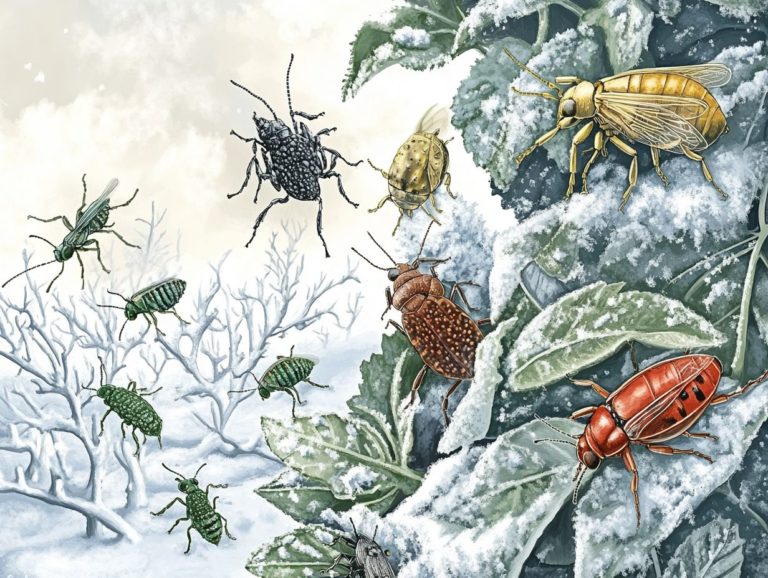The Best Timing for Pest Control in Winter
As winter approaches, many homeowners believe that pests retreat until spring. However, this season can actually usher in a variety of unwelcome guests seeking refuge in your home, leading to potential infestations.
Understanding the details of winter pest management is crucial for preserving a comfortable living space. This article delves into the importance of winter pest control, highlights common intruders, and provides valuable insights on effective strategies and preventive measures.
Empower yourself to safeguard your home by learning when and how to address these pesky invaders with effective treatments.
Contents
- Key Takeaways:
- Understanding Winter Pest Control
- Common Winter Pests
- When to Conduct Pest Control in Winter
- Methods of Winter Pest Control
- Preventing Winter Pests
- Frequently Asked Questions
- What is the best timing for pest control in winter?
- Why is fall the best time for pest control in winter?
- What are the common pests to watch out for during winter?
- Can pests survive during winter?
- What are the risks of waiting until winter to address a pest problem?
- Are there any DIY pest control methods for winter?
Key Takeaways:
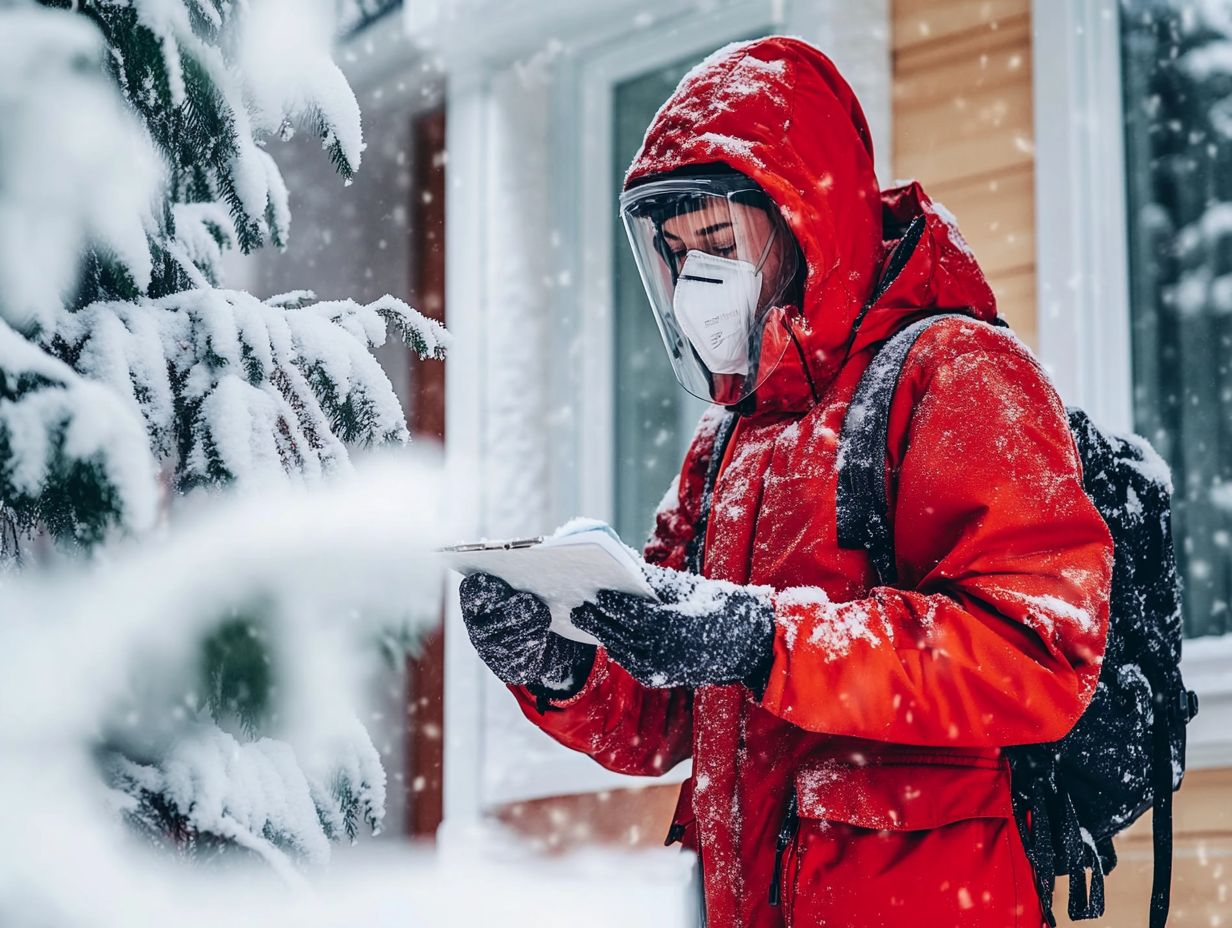
- Pest management is crucial in winter to prevent infestations and avoid potential health and property damage, especially in regions like Florida.
- Common winter pests include rodents, spiders, insects, and even bed bugs, which can be controlled through various methods.
- The best timing for pest control in winter depends on factors like temperature and pest activity, making early treatments highly recommended.
Understanding Winter Pest Control
Knowing the details of winter pest control is vital for homeowners, especially in regions like Florida, where pest activity remains a concern even during colder months. Regular pest inspections are essential.
As winter sets in, pests such as insects and rodents may seek refuge indoors. This can lead to infestations that threaten your pest-free home.
By familiarizing yourself with effective pest control practices, such as scheduling quarterly inspections and treatments, you can greatly reduce the risk of unwelcome guests as the weather shifts.
Why Pest Control is Necessary in Winter
Winter is the perfect time to ramp up your pest control efforts! Common household pests try to escape the cold by seeking refuge indoors.
During the frosty months, you might notice unwelcome guests like rodents and various insects, including cockroaches and ants.
Rodents are talented at squeezing through tiny openings, bringing risks that extend beyond property damage to potential health hazards due to contamination. Similarly, spiders often settle in cozy corners of your garage or attic.
Insects like cockroaches and termites can find hiding spots within your appliances, necessitating regular pest inspections.
Engaging professional pest control services, such as EcoGuard Pest Management or Consolidated Pest Control, is vital for tackling these wintertime invaders. These experts use targeted strategies to address the specific habits and hiding spots of pests, effectively preventing future infestations and ensuring your living environment remains secure and healthy.
Common Winter Pests
Winter brings a host of common pests eager to invade your home in search of warmth and food. This includes rodents, insects, and spiders, and even mosquitoes in some regions.
If left unchecked, these unwelcome guests can quickly spiral into significant infestations. Prompt action is essential through effective management strategies to maintain a comfortable and pest-free environment.
Take action this winter! Protect your home from pests by scheduling regular inspections and treatments.
Identifying and Dealing with Winter Pests
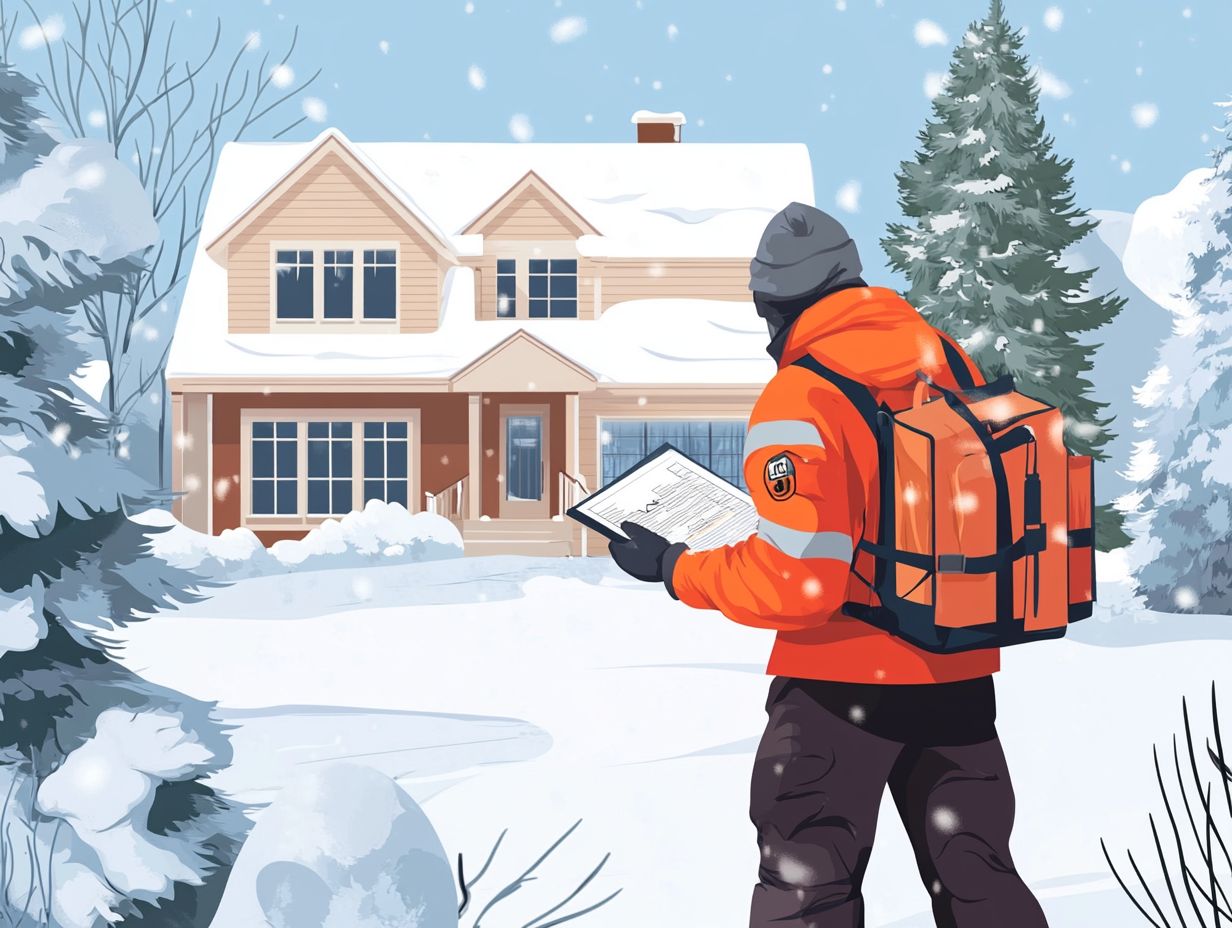
Identifying and managing winter pests is essential for keeping your home pest-free. These unwelcome guests often go unnoticed during colder months, leading to bigger problems.
Look out for rodents like mice and rats. They seek warmth indoors and leave droppings and gnaw marks on food packaging.
Boxelder bugs are another sign of trouble. Their reddish-black bodies can indicate an infestation.
Effective pest control techniques include sealing entry points and keeping your home clean. Consult a pest control expert for long-term solutions!
When to Conduct Pest Control in Winter
Knowing the best time for pest control in winter is crucial. This helps manage pest populations and prevents larger infestations, highlighting the importance of winter cleanup for pest control.
Factors to Consider for Optimal Timing
When planning your pest control, consider pest activity, weather, and specific pest species. Temperature changes can drive pests indoors, so stay alert!
Experts recommend setting traps and inspecting common entry points to assess the extent of the infestation. Recognizing seasonal patterns, like peak mating or feeding times, can help you determine the best moment for your pest control treatments.
If you’re unsure about the type or number of pests in your space, consulting a pest control expert from companies like Orkin or Terminix can offer tailored strategies that ensure your interventions are timely and effective.
Methods of Winter Pest Control
Use various winter pest control methods to keep your home pest-free. Regular inspections are key!
Effective Techniques and Products
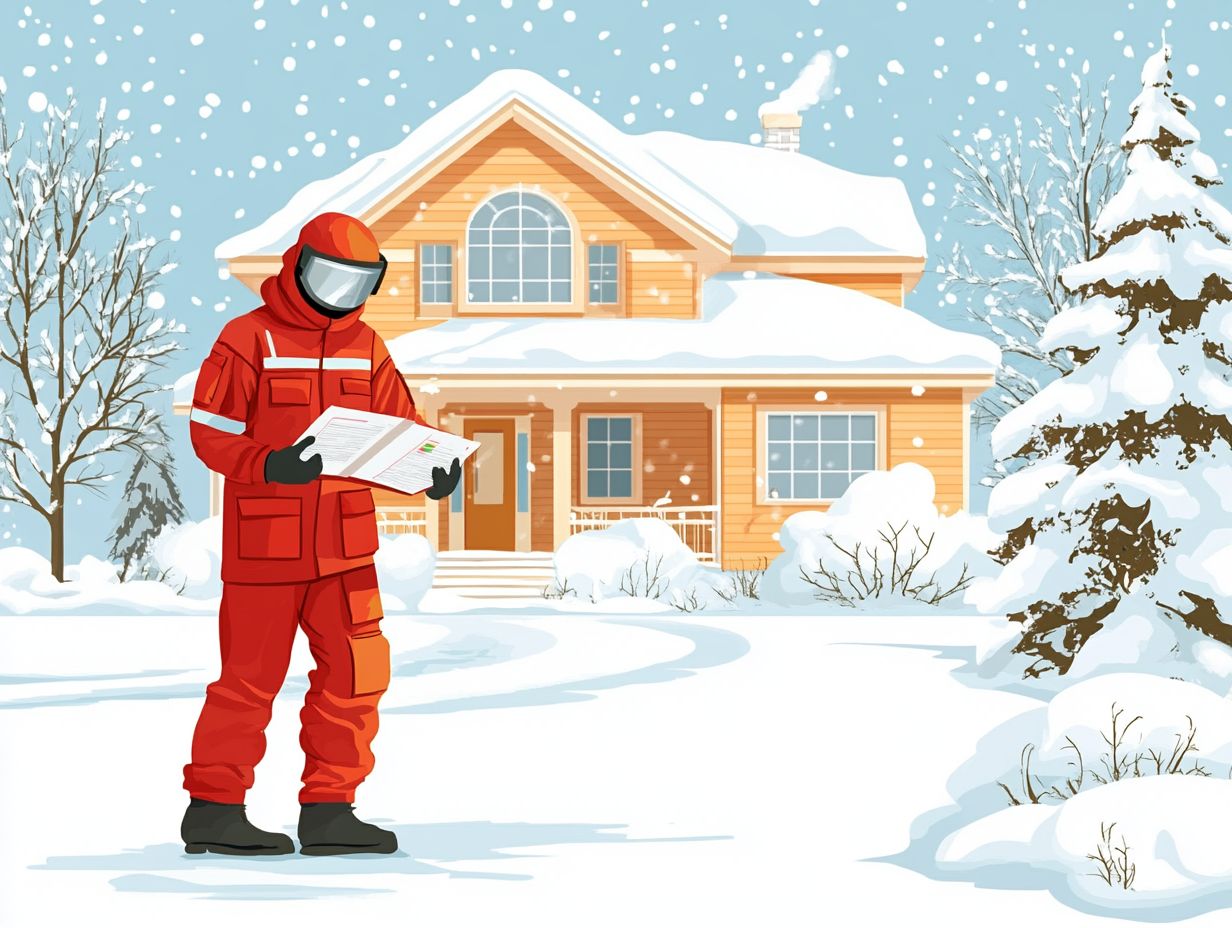
Utilizing effective techniques and products is essential for winter pest control. This keeps your living spaces comfortable and safe!
Eco-friendly insecticides, like diatomaceous earth (a natural powder that helps control pests) and neem oil, offer safe and potent options to manage pest populations effectively. Sticky traps serve as versatile tools, capturing crawling insects without harmful chemicals.
A family tackled a severe rodent problem by using these methods. They saw a big drop in pest sightings in just a few weeks!
Preventing Winter Pests
Preventing winter pests is a preventive measure that empowers you to pest-proof your home against invaders. This effectively eliminates entry points and food sources for unwelcome visitors during the colder months.
By taking these steps, you not only safeguard your living space but also create a more comfortable environment that is free from pest problems as the temperature drops.
Preventive Measures and Tips
Implementing preventive measures and insightful tips can significantly reduce the chances of winter pest issues. This also enhances your overall pest management efforts and ensures a pest-free home.
Begin by conducting regular inspections around your property to pinpoint potential entry points that pests might exploit. Check for cracks in walls, gaps around doors and windows, and ensure your screens are in good condition to help prevent infestations.
Proper waste disposal is vital. Sealing your trash bins and keeping compost piles at a distance from the house can greatly reduce attractants, which is crucial for pest-proofing your home.
Thoughtful landscaping choices, such as maintaining a clear perimeter around your home and using mulch judiciously, can also deter unwelcome visitors.
Combine these strategies for a stronger defense against winter pests. Regular pest control inspections will help you cultivate a more resilient environment against those pesky nuisances.
Frequently Asked Questions
What is the best timing for pest control in winter?
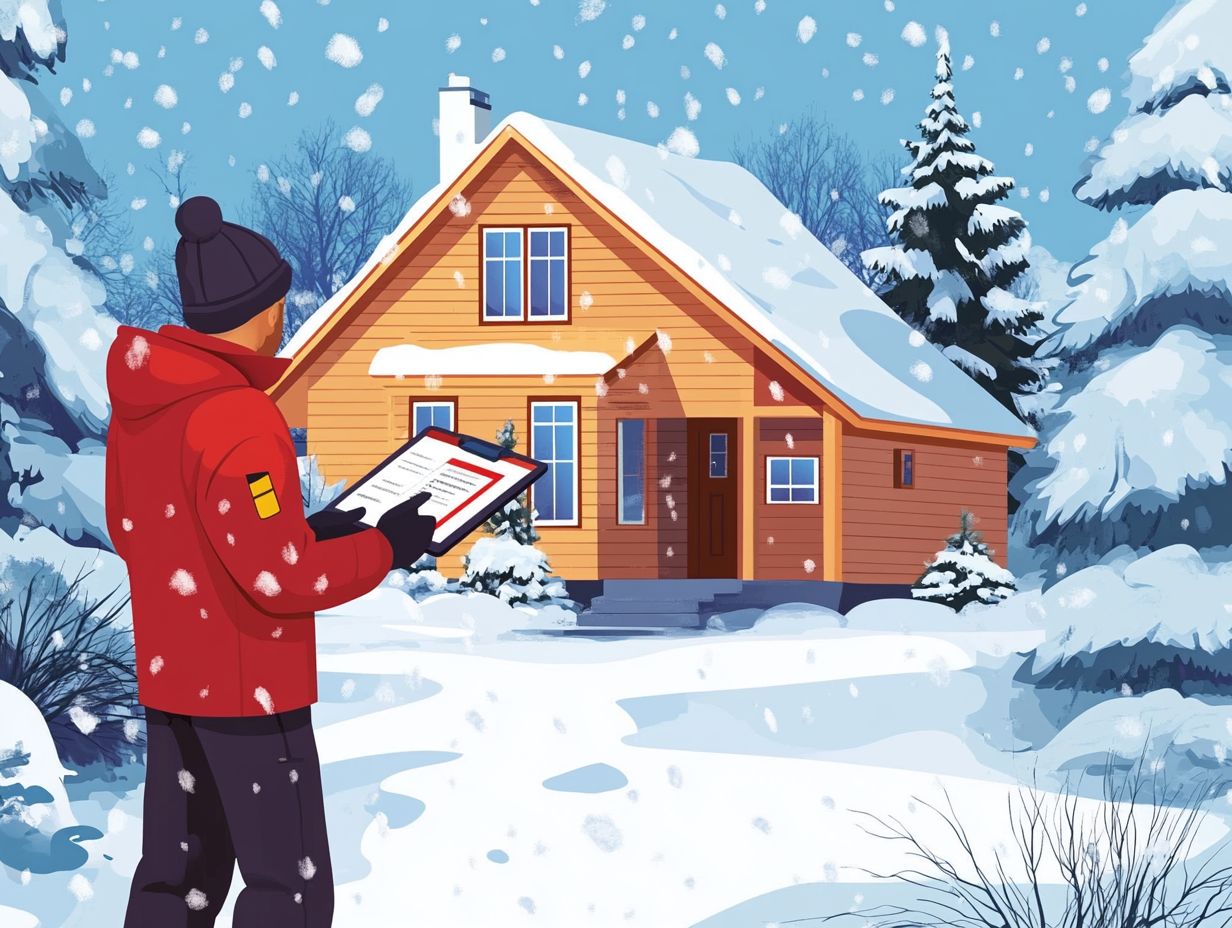
The best timing for pest control in winter is typically before the winter season begins, ideally in the fall. This helps prevent pests from entering your home or business during the colder months, making it crucial to understand pest behavior in cold weather.
Why is fall the best time for pest control in winter?
Fall is the best time for pest control in winter because it allows for a proactive approach. Treating for pests in the fall helps prevent them from seeking shelter and nesting in your home or business during winter.
What are the common pests to watch out for during winter?
Common pests to watch out for during winter include rodents, spiders, cockroaches, and ants. These pests often seek shelter and warmth in buildings during colder months.
Can pests survive during winter?
Yes, pests can survive winter by finding shelter and food sources inside buildings. Some pests, such as bed bugs and rodents, are even known to hibernate during these months.
What are the risks of waiting until winter to address a pest problem?
Waiting until winter to address a pest problem can lead to a larger infestation, extensive property damage, and potential health risks. It is best to be proactive and address pest issues, especially by utilizing pest control services, before winter arrives.
Are there any DIY pest control methods for winter?
While there are some DIY pest control methods for winter, it is always best to consult with a professional pest control company. They have the knowledge and experience to effectively and safely treat pests during the winter months, ensuring a pest-free home throughout the seasons.



